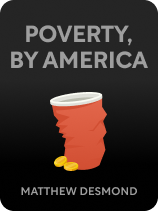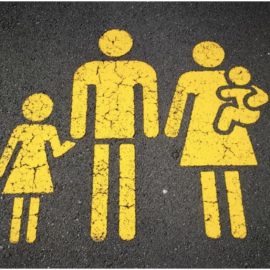

This article is an excerpt from the Shortform book guide to "Poverty, by America" by Matthew Desmond. Shortform has the world's best summaries and analyses of books you should be reading.
Like this article? Sign up for a free trial here.
Does the tax code favor the rich? Is a progressive tax system the most fair?
Matthew Desmond asserts that poverty in America persists because it benefits many people to keep some others in a state of want. He offers a multifaceted approach to eradicating poverty. One part of this is to crack down on welfare for the rich and use the money to empower the poor instead.
Continue reading to get the details of Desmond’s proposal as well as a counterargument to it.
Crack Down on Welfare for the Rich
Desmond further recommends cracking down on the nation’s exorbitant welfare for the rich—largely through preferential treatment in the tax code—and reinvesting it into anti-poverty initiatives.
He notes that there is approximately $1 trillion in unpaid tax annually, a disproportionate share of which comes from the wealthy. He recommends stepping up enforcement of these unpaid taxes, while also increasing the top marginal rate (the taxes on the portion of income that falls within the highest income bracket) and corporate tax rates, which currently stand at nearly half of what they were in the 1970s. Finally, he urges lawmakers to close tax loopholes, such as the mortgage interest deduction which overwhelmingly benefits the affluent, and tax capital gains (taxes on profits earned from the sale of assets, such as stocks or real estate) at rates equal to ordinary income, so that corporate shareholders pay the same rate as workers.
| The Failures of Progressive Taxation What Desmond is advocating is a more progressive tax system—one that taxes higher-income earners at a higher rate than lower-income earners, so that the government can address income inequality. However, some economists argue that this approach is economically harmful and ultimately self-defeating. In Capitalism and Freedom, Milton Friedman writes that the problem with progressive taxation is that it increases pre-tax income inequality. If high earners know that their top marginal tax rate is going to be high, lucrative jobs become less attractive than they would otherwise be. The only way to compensate for this is to make these kinds of jobs even more well-paid—thereby increasing pre-tax inequality. Friedman observes that progressive tax codes are also nearly always more complex than alternatives. This creates a strong incentive for wealthy people to devote inordinate resources to devising complex and wasteful tax-avoidance schemes. Instead, he argues, a flat tax is more efficient and equitable than a progressive tax. Under a flat tax, everyone would pay the same rate, regardless of income level or income type. Because the rates would be uniform and all types of income would be equally subject to taxation, there would be far less incentive for individuals and businesses to waste resources on tax avoidance schemes. |

———End of Preview———
Like what you just read? Read the rest of the world's best book summary and analysis of Matthew Desmond's "Poverty, by America" at Shortform.
Here's what you'll find in our full Poverty, by America summary:
- Why the United States suffers from so much poverty and inequality
- How some Americans benefit from the poverty of others
- How we can empower the poor and eradicate poverty






